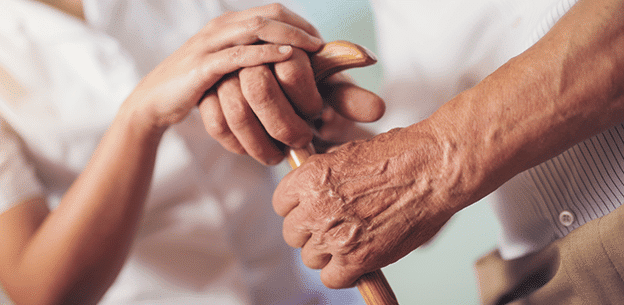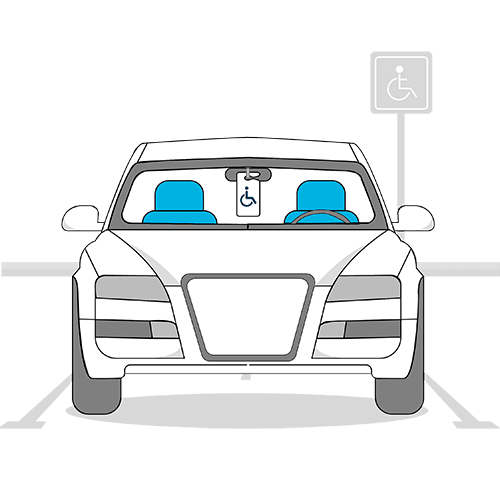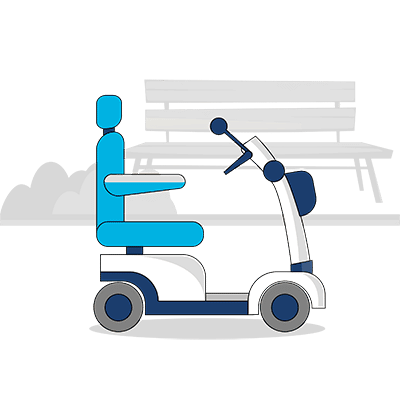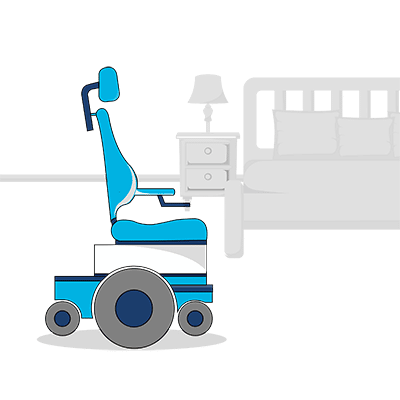Living with a disability can be challenging on the best of days, which is why a great NDIS support worker can mean the world of difference.
A good support worker will help you find your place in the world and live your best life. Let’s look at how to discover one that will meet your needs and complement your lifestyle.
Is a support coordinator the same as an NDIS support worker?
Your plan manager will help you manage your funding, and your support coordinator will help you source and implement available supports. However, your NDIS support worker may just be the most important person in your disability services journey.
They needn’t be a Gandhi, Obama or Mandela, and they may even have a disability of their own, but what’s super important is that you feel you can trust them. They will be with you in your most vulnerable moments. You will rely on them to support you well at all times.
How will you find them? Here is a list of NDIS-registered providers by state and territory.
What are the qualities of a good NDIS support worker?
There are natural tendencies to look for in a support worker. Personality traits which predispose them to understand and accommodate another person’s needs, rather than seeing that person as an opportunity for exploitation or personal gain.
Some of these characteristics are:
Communicates well
This can mean asking the right questions at the right time, listening and responding appropriately, or even knowing when you need quiet time. People who communicate well make you feel understood whether they are using words or actions.
Is patient
You know that feeling when you’re doing your best to get ready and everyone else has eaten breakfast and is hurrying you out the door? Good support workers understand success is about achieving mobility, not keeping up with the Joneses.
Is adaptable
Whether you have muscular dystrophy or a Spinal Cord Injury (SCI) you know that chronic pain can leave you exhausted. That may mean plans sometimes change from going out to staying home, or leaving somewhere early. Your support worker needs to be flexible.
Has empathy
Empathy is sharing another person’s feelings. Empathetic people can see the world from another person’s point of view and can react accordingly. Some people tend toward sympathy rather than empathy, which may suffice. Although they can’t imagine how it feels to be you, they can care out of concern.
Is responsible
Accepting responsibility can be challenging, but is an honour for any good carer. A responsible NDIS support worker is attentive and respectful to your needs. They will notice if there are changes to your disability needs too. This sense of responsibility can help you make decisions about future requirements, such as changes to your home accessibility or mobility equipment insurance.
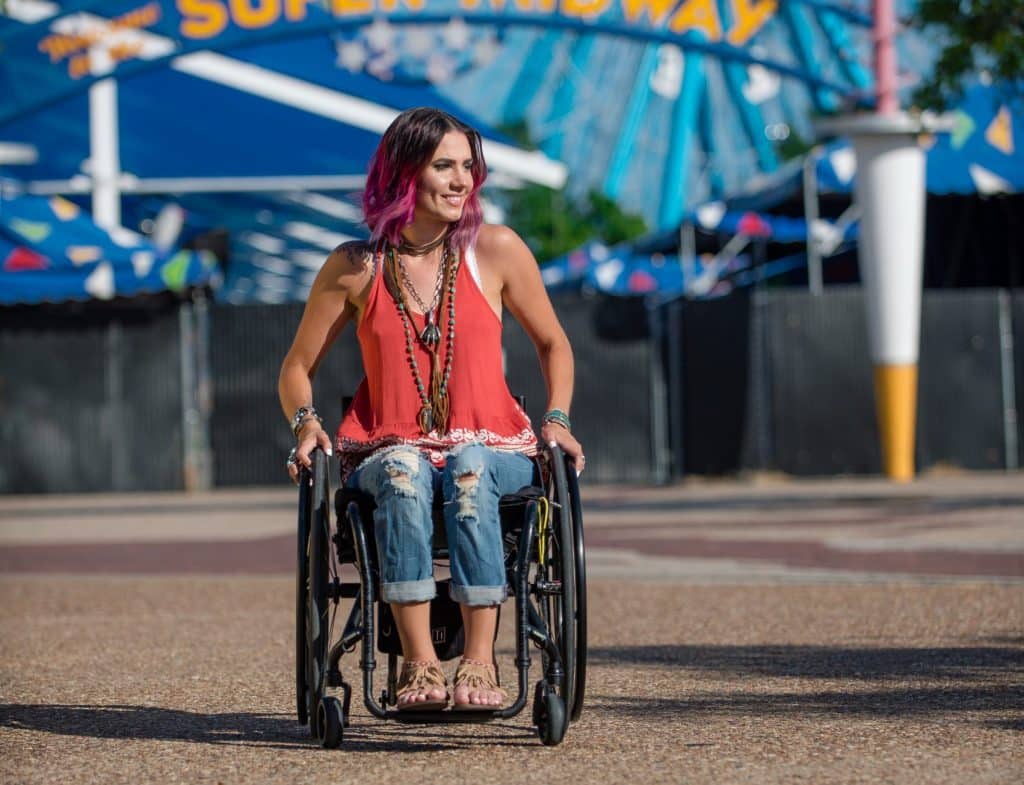
Choosing the right care worker – asking the right questions
When you speak to a care worker it’s important that you don’t ask them questions in a way which also provides an answer. If you tell a person what you want to hear, they will just agree with you.
What you want is to know who they really are, and for them to tell you openly and honestly. Some basic questions you can begin with are:
- Tell me about yourself?
- Describe your experience working with disabled people?
- What are some challenges you anticipate in this role?
- What made you choose this role?
- Why do you think you are the right person for this role?
- Tell me about your ability to be XYZ (see qualities listed above)
- I need you to do XYZ each day – how do you feel about that?
- What questions would you like to ask me?
What should a child support worker have?
Mums and dads around the world will testify that caring for a child is the most wonderful but also the hardest job they have ever done. So, an NDIS support worker for children will need to be an emotionally generous person. And patient.
Make sure they have extensive and varied experience with children living with disability. Specifically, if possible, with children who have similar or the same needs to your own. That way they can hit the ground running without undertaking a big learning curve.
Talk to them about their approach to dealing with challenging behaviours and difficult situations you know they will encounter. Are they happy to follow your lead?
There needs to be a personality match too – between your child and the worker as well as you and the worker.
When everyone is on the same page you can transition into a successful support relationship much more smoothly.
Additionally, you can expect them to have the following (at the minimum):
- Working with Children Check
- National Police Certificate
- First Aid Certificate
What is the physical role of a disability support worker?
The NDIS offers diverse disability support. Whether you’re more Colt Wynn or more Michael J. Fox, your physical needs must define your support worker’s role.
Make a list of your requirements using this (by no means exhaustive) criteria:
- Mobility (getting around the house, shopping, visiting friends and family)
- Health needs (attending medical appointments, taking medication, being fed)
- Personal care (washing, changing, toileting)
- Daily living requirements (cleaning, cooking, eating)
- Social mobility (accessing the community, taking part in sport and religious outings)
- Everyday tasks (making phone calls, writing lists, sending emails)
- Assistance with therapies (exercising, stretching)
Is it worth joining a support group?
Support workers often mentor, support, advise and observe support groups to gain inside information on a particular disability. So by joining a support group, you create an opportunity for support workers to gain valuable insights. In other words, you become a support system for them.
However, the main reason for joining is that being with people who have the same disability can help you improve your sense of belonging. You should also pick up a range of tips about navigating the NDIS, and disability services more broadly. You may even develop clearer ideas about your needs and wants.

How can I find the right support group for my disability?
Blue Badge Insurance has created a list of trusted service providers who can help you identify a great support organisation, called the Blue Badge Insurance Preferred Partner Network.
Here is the list:
- Brain Injury Australia
- Muscular Dystrophy Queensland
- Paraquad NSW (PQNSW)
- Paraquad South Australia (PQSA)
- Parkinson’s NSW
- Physical Disability Council of NSW (PDCN)
- Spinal Cord Injuries Australia (SCIA)
Of course, there are many, many other support organisations and networks open to you. Turn to Google to find the most appropriate group for your individual needs.
How do I become a support worker?
So you want to become an NDIS support worker? There are plenty of disability support businesses looking for eager, capable team members. Check out these matching platforms to see where you might fit.
Australian Government statistics list the three most common motives given by care workers for their career choice:
- A sense of family responsibility
- Emotional obligation
- Ability to provide better care than anybody else
Sound familiar?
Former Northcott Disability Services Chief Executive Officer Kerry Stubbs, says that support workers “do the work for not enormous amounts of money.” Support workers also sometimes work for free, as an act of care. Despite the pay situation, many say the job satisfaction is tremendous.
Whatever the case, when choosing an NDIS support worker take your time. They need to be right fit for you, your family and your lifestyle. And if you choose well they will hopefully remain with you for many years to come.


